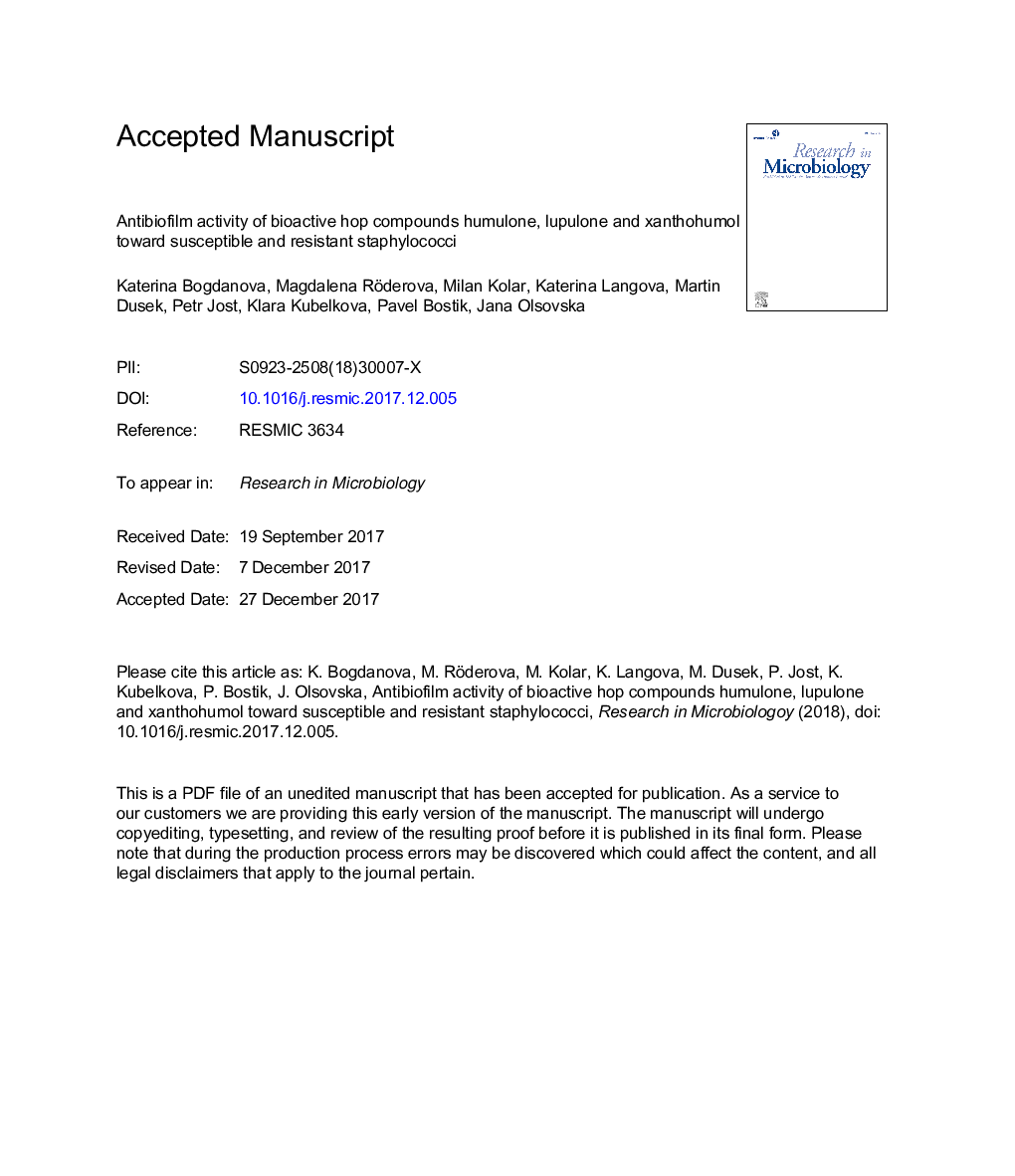| Article ID | Journal | Published Year | Pages | File Type |
|---|---|---|---|---|
| 8842866 | Research in Microbiology | 2018 | 31 Pages |
Abstract
Bacterial biofilms pose a serious medical problem due to their significant resistance to antimicrobials, and staphylococci are recognized as the most frequent cause of biofilm-associated infections. The hop plant (Humulus lupulus L.) contains substances that have been determined to act as anti-infective agents against bacteria, mainly in planktonic form. Therefore, we decided to investigate the antibiofilm properties of H. lupulus L.-derived compounds (humulone, lupulone and xanthohumol) against a selected group of Staphylococcus spp., including methicillin-susceptible and resistant strains. All tested hop compounds were shown to possess antimicrobial properties against all tested staphylococci, both planktonic and biofilm-dwelling, with no significant difference between resistant and susceptible strains. All compounds lowered the number of bacterial cells released from the biofilm, with the strongest effect seen for lupulone, followed by xanthohumol. Moreover, lupulone and xanthohumol were not only able to penetrate the biofilm and reduce the number of bacteria within it, but their higher concentrations (â¼60 μg/mL for xanthohumol and â¼125 μg/mL for lupulone) reduced the number of surviving bacterial cells to zero.
Keywords
Related Topics
Life Sciences
Immunology and Microbiology
Applied Microbiology and Biotechnology
Authors
Katerina Bogdanova, Magdalena Röderova, Milan Kolar, Katerina Langova, Martin Dusek, Petr Jost, Klara Kubelkova, Pavel Bostik, Jana Olsovska,
